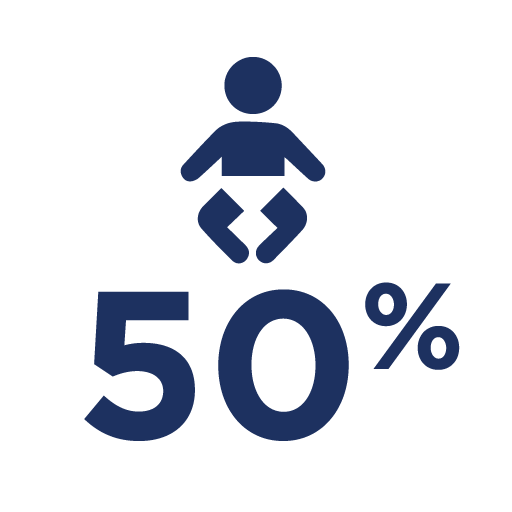What is Hereditary Angioedema?
Hereditary angioedema is also known as C1 Deficiency. It is a rare and potentially life threatening genetic disorder. Hereditary angioedema is characterized by recurrent attacks of swelling in the skin, upper airway and gastrointestinal tract. People are born with hereditary angioedema. Patients may not begin experiencing symptoms until childhood. Many people do not learn the true cause of the swelling until adulthood.
What are the Symptoms of Hereditary Angioedema?
The primary symptom of hereditary angioedema is recurrent swelling that lasts between two and five days. Hereditary angioedema impacts the following areas:
- Skin swelling, specifically in the hands and feet, can be excruciating. The pain is often a hindrance to the patient's normal daily activities.
- Airway or Throat swelling can close the airway, potentially causing death by asphyxiation. This is the most dangerous and life threatening symptom for any hereditary angioedema patient. It is imperative to immediately seek medical treatment at the first sign of throat swelling.
- Abdomen swelling is swelling of the intestinal wall. This leads to pain in rest of the abdomen. The swelling and pain are accompanied by nausea, vomiting and diarrhea.
What Triggers Hereditary Angioedema?
The symptoms of Hereditary Angioedema are commonly precipitated by:
- Mild trauma
- Oral trauma, such as dental work or oral piercings
- Viral infections
- Surgery
- Pregnancy
- Certain medication, such as ACE inhibitors
Other, less common, triggers include:
- Typing
- Hammering
- Shoveling
- Prolonged writing
- Pushing a lawn mower
What causes Hereditary Angioedema?
There are three types of hereditary angioedema.
- Types I and II are caused by a defect in the gene that controls the C1 Inhibitor. The C1 inhibitor is a protein in the blood that helps control inflammation. When there is not enough C1, there is an excess of bradykinin in the bloodstream. Too much bradykinin leads to an increased amount of fluid leaking into the body tissues from the blood vessels. This causes inflammation.
- Type III is, in some cases, caused by a defect in the gene that aids in the production of coagulation factor XII. This causes an excess in the production of bradykinin. The excess amount of bradykinin causes the blood vessel walls to be more susceptible to leakage, leading to an increased amount of fluid in the body tissues. The increased fluid in the body tissues leads to inflammation.
How is Hereditary Angioedema treated?
There are two courses of treatments available for hereditary angioedema patients:
- Preventative (Prophylactic) treatment prevents attacks from taking place. This treatment is often recommended for patients who experience frequent attacks or have a lifestyle dramatically impacted by their condition.
- On-Demand treatment treats the attacks as they occur. It reduces both the severity and duration of the attacks.
How can Noble help me manage my Hereditary Angioedema?
At Noble Health Services, we offer a variety of medications to help you treat your condition. We help you manage your condition through our Signature Care Program. Our program includes medication delivery, 24/7/365 on-call support, co-pay assistance and more.
For more information on what hepatitis angioedema medications we offer, please view the hereditary angioedema enrollment form.
For more information about Hereditary Angioedema, contact the following resource:
- US HAEA
Phone: 1-866-798-5598
haea.org
Interested in what Noble Health Services can offer you?
Learn More!


